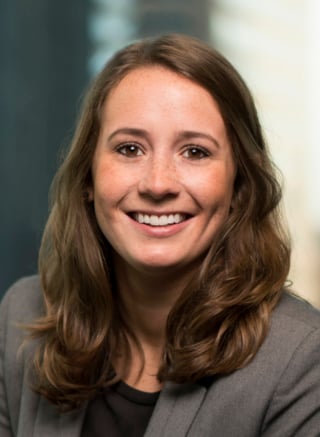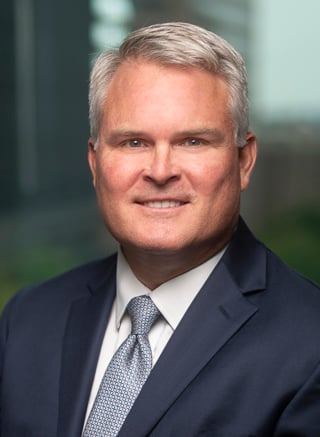Interview: Carly Miller And David W. Owen Of Bradley Discuss Discovery And Third-Party Funding In International Arbitration
Mealey's International Arbitration Report
Mealey’s: What is your professional background and how did you both become involved in international arbitration?
Miller: I’ve been practicing law with Bradley in its construction group for a little over 10 years. We rep- resent a lot of large contractors and owners of large projects, primarily energy-focused, and those projects are often large, complex, involve international parties and are happening all over the world. A function of that is that we follow our clients where the work is, getting involved in any disputes they have. We’ve worked on a number of renewable projects, including solar and hydro primarily, and the fact that they often involve international parties across international lines brings into these disputes a series of issues — legal, contractual and practical — that I find complex and exciting to navigate.
Owen: I’ve been in the construction and engineer- ing industry for 33 years and have been practicing law for 24 years. I became a lawyer because I wanted to practice law in the area of construction project development. Like Carly said, you go where your clients go, so that’s really what we’ve done, and as you develop expertise and experience in certain areas then you have a reputation for that area, and it starts growing beyond that. Carly and I spend most of our time on international energy disputes, including renewables, so that’s how I got involved in international arbitration. I still do a lot of domestic work, but it seems that for our firm and our practice group, the international space is growing for us, so we’re having a larger presence in that arena as time goes on.
Mealey’s: What trends or regions of importance do you see emerging in the field of international arbitration?
Owen: We have a fair amount of activity in Latin America, and again, it’s because we have clients with various activities down there in the energy industry. We do a fair amount of energy and construction work in Europe as well. We’ve also had a big uptick of arbi- trations with Turkish clients or Turkish construction companies and quite a large number on projects in other countries.
One trend I’m seeing is pretty granular, but on ICC [International Chamber of Commerce] arbitrations, we’re seeing a trend toward joint expert reports as opposed to the traditional party-selected experts that present their opposing views. I’ve seen tribunals ask that those be joint, at least initially.
The other is that we’re seeing an increase in interest and the market for third-party funders to arbitrations.
Miller: I agree with David about our experience in Central and South America; we both have a fair amount of experience in that area. There are poten- tial topographic and climate reasons why renewable projects may be an area of growth for that region, and as a result, the construction disputes follow. Another geographic region where there are certainly emerg- ing trends is Asia. In particular, I’m seeing disputes arise with suppliers, whether they be China-based or other Asian countries that are providing equipment or hardware for these kinds of projects. The regula- tory landscape there is obviously changing rapidly with each administration, and with those regulatory changes come commercial, legal and contractual changes. I think that’s an area that will continue to grow and evolve.
For disputes, another area to be cognizant of is how to deal with discovery or document production in these types of disputes. It’s not going to be a surprise to anyone that on these major complex projects, there are just an incredible number of documents that may support either side’s case. International arbitration in particular, as opposed to more American-style arbitration, is focused on targeted, narrow document exchange and not getting into handing over all project files. There’s certainly some tension there with trying to adhere to those principles of efficiency while also recognizing that for a party to put on its whole case, there’s a lot of documents at issue. It can be difficult to adhere to both of those principles, and certainly, every case is different. I’m in favor of a more stream- lined process, but at the same time, coming from the American style of arbitrating and litigating, what’s relevant is relevant.
I also fully agree with David on the joint experts; we’ve seen that a lot: Arbitrators trying to be more efficient, perhaps have a little more control over the proceedings by having their own experts and conferencing with the experts separately. As arbitration counsel, we try to shift our approach to meet the particulars of each case and of each arbitral tribunal.
Mealey’s: Can you describe the joint-expert requests you’ve seen in more detail?
Miller: Traditionally, or at least in my experience in the U.S.-based style of expert presentation, each side engages their expert on whatever subject mat- ter is relevant to the dispute, and then those experts participate in the report process, whereby the experts go back and forth with their opinions in a sequential approach.
What we’re seeing more recently, and particularly in these international arbitrations, is the arbitration tri- bunal or panel is wanting to hear from these experts jointly, contributing to the same report, so that they can agree to answers to relevant questions, and they’re also wanting to hear from these experts together, testi- fying together in person at the hearing — the term is sometimes casually known as “hot-tubbing.” Often, arbitrators want to get these experts together, testify- ing simultaneously to get their answers, and one of the primary purposes is to weed out what they agree on and what they don’t agree on, rather than go back and forth in their reports.
A separate issue we’re seeing more frequently is a desire by arbitrators to hire their own arbitrator-appointed expert, to either work with the party-appointed ex- perts or just give their own assessment of the evidence and their opinions to the tribunal. I haven’t seen that quite as often as the joint expert process, but I have a feeling we’ll continue to see this approach suggested by arbitrators in these disputes.
Mealey’s: Can you expand on what you’re seeing in the market for third-party funding and how international arbitration rules are being revised to require more disclosures of funding sources?
Owen: The risk appetite for disputes is different for different lenders depending on the type of indus- try they’re in, but obviously they see it as a way to profit, and obviously, on the other side for the litigant companies, cash is king. If you can get funding and cash and equity now for something that needs to be financed over a long period of time, that may make a big difference in the operation of your company or in your books for various reasons. I think there are prob- ably a number of factors involved, and those factors support the notion that for various types of claims, you may be able to obtain some funding or have an- other party invest in your claim, and it’s better for you to do that as opposed to going it alone.
Miller: I’m not at all surprised that there may be ex- panding disclosure requirements around third-party funding or a need to disclose those arrangements, particularly with these disputes being so large and costly. How these disputes are being funded is po- tentially relevant to a number of issues in a particular dispute. I would expect third-party funding to be a trend that continues, as will the obligations to disclose those arrangements.
Mealey’s: Do you have any thoughts of how the use of AI could impact international arbitration?
Owen: You can put AI into various categories. One category is using it to support different tasks, such as discovery. I’m sure AI will become more prominent and useful in that way, how, I can’t really tell you spe- cifically, but I suspect it will.
The other category is warnings about AI. For us as lawyers, we don’t just go to ChatGPT and ask it to write us a brief and believe everything it says. We don’t do it at all, and certainly wouldn’t just believe the output. How AI might somehow assist strategi-
cally is yet to be seen, but right now a big caution for all of us practitioners is making sure you don’t become a victim of some sort of AI problem.
Miller: It’s going to continue to have an increasing role. I was talking with a client last week who has been able to implement some AI tools very effectively through a kind of closed system, so the universe of in- formation comes from within that company. They’ve been able to use that system very effectively to pull bids and estimates and other contract or contractor info very effectively and efficiently.
Building a structure is very different from building an arbitration case, so it’s not apples to apples with what lawyers do and how AI might be used in the legal space. We have ethical obligations and confidentiality obligations that make that a little more challenging, but it’s something that’s going to continue to grow and people are interested in ways to make things more efficient, so we’ll have to see how it develops.
Owen: You have to ask, by using AI — and using that term broadly and loosely — what privilege issues are involved? Are you giving it information that may be privileged and owned by a client? Just because you put it into a keyboard over the abyss of the internet doesn’t mean it’s just used for your purposes. Thought must be given to these considerations as the industry continues to develop and utilize various forms of AI.
Republished with permission. The original article "Interview: Carly Miller And David W. Owen Of Bradley Discuss Discovery And Third-Party Funding In International Arbitration" was published by Mealey's Interational Arbitration Report in their April 2024 edition.


